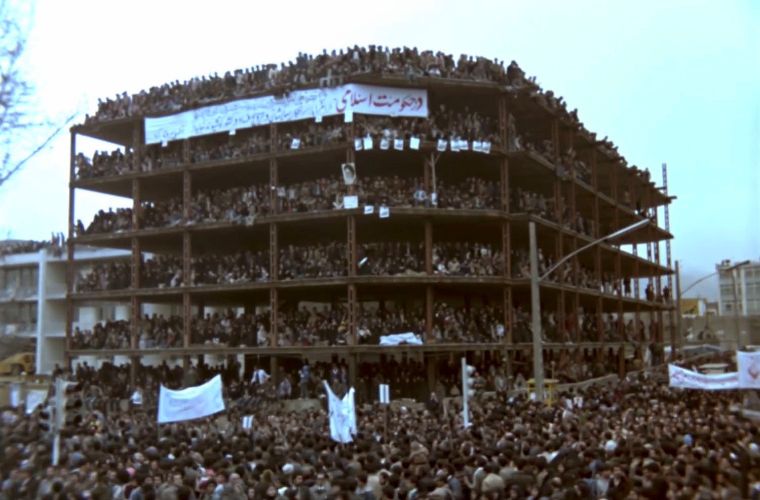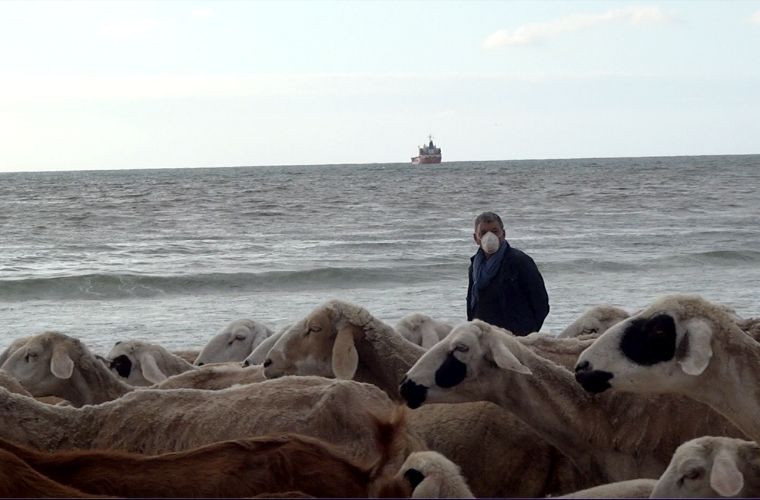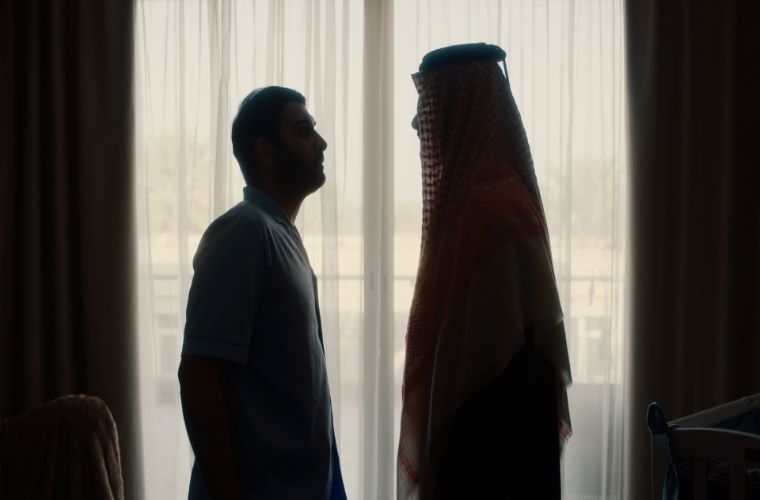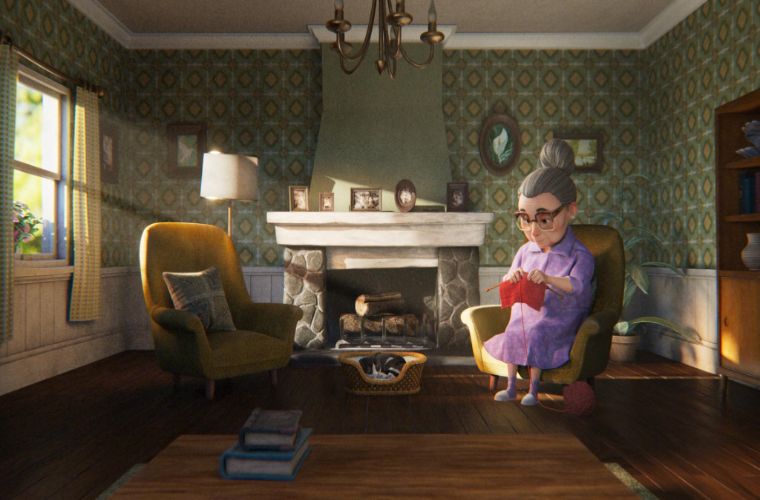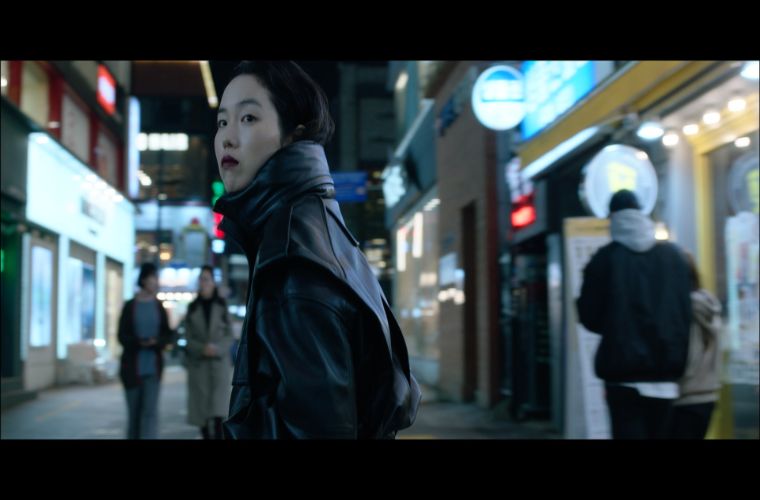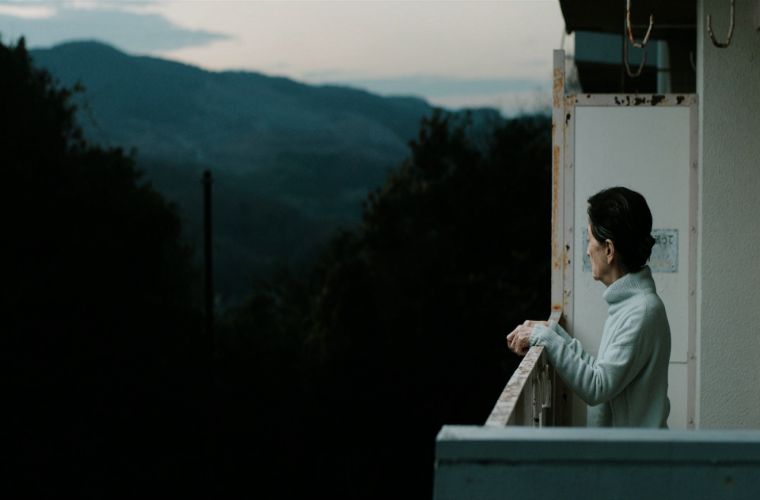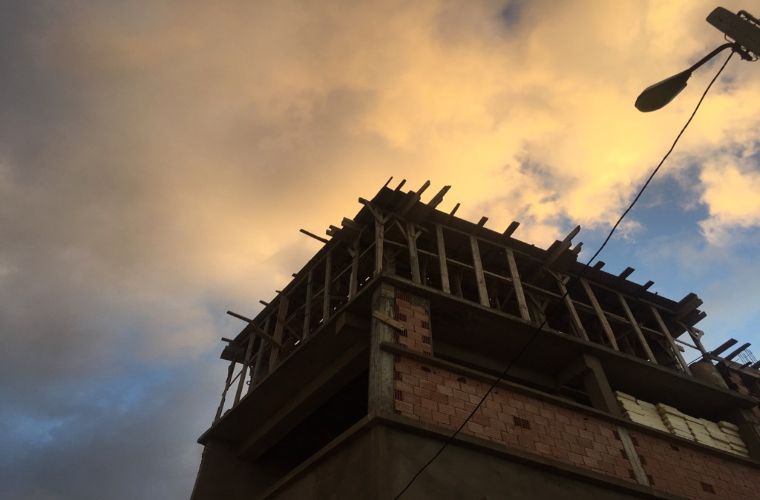Doha, Qatar - May 22, 2022: The Doha Film Institute continues to build on its ongoing support for emerging and independent voices in cinema with 44 film projects by filmmakers from across the world chosen for its 2022 Spring Grants cycle. This was announced at Cannes Film Festival 2022, where four of the Spring Grants recipients are showcasing their projects including two in the Un Certain Regard category.
The Doha Film Institute Grants programme, awarded in two cycles – Spring and Fall, is the region’s longest-serving film support initiative that identifies and nurtures first-and second-time filmmakers globally. Seeking out original voices and promoting them, the programme aims to develop a community of filmmakers among the Institute’s alumni and encourages creative interaction among artists worldwide. To date, more than 650 film projects from 74 countries have benefited from the Grants programme.
The Spring 2022 Grants recipients includes projects from over 33 countries ranging from Chile to China, Poland to Ukraine, Egypt to Greenland, and Switzerland to Sudan. The selection includes 11 films by Qatari talents. For the first time, the Grant is being awarded to a film project from Comoros. Nine filmmakers are returnees, having earlier been supported by the Institute with grants or were nurtured at Qumra, the annual talent incubator event, for their current or earlier productions.
In addition to Qatar, the countries represented in this cycle include Algeria, Argentina, Belgium, Chile, China, Comoros, Croatia, Egypt, France, Germany, Greenland, India, Iran, Japan, Lebanon, Luxembourg, Morocco, Norway, Palestine, Philippines, Poland, Romania, Saudi Arabia, South Korea, Sudan, Switzerland, Syria, The Netherlands, Tunisia, UK, Ukraine, USA, and Yemen.
Films from this cycle selected to screen at Cannes include All The People I’ll Never Be (France, Germany, Belgium, South Korea, Romania, Qatar) by Davy Chou; Harka (Egypt, France, Tunisia, Belgium, Germany, Luxembourg, Qatar) by Lotfy Nathan; and Plan 75 (Japan, France, Philippines, Qatar) by Chie Hayakawa, screening in the Un Certain Regard section, and Cotton Queen (Sudan, Palestine, Germany, France, Qatar) by Suzannah Mirghani, selected for Cannes’ Cinéfondation Atelier.
Fatma Hassan Alremaihi, Chief Executive Officer of the Doha Film Institute, said: “We are honoured to extend our support to first- and second-time filmmakers with the Spring 2022 Grants cycle that reiterates our commitment to promoting independent and important voices in cinema. At no time in recent history has the need to extend support to emerging filmmakers been so important, especially following the challenges of the past two years which impacted the global creative industry. Our Grants programme is our long-standing commitment to build a body of exceptional cinematic work by new talents with stories that resonate globally.”
She added: “We are proud to present a new slate of projects from across the region and beyond, which we are confident will raise the bar of independent cinema. Over the years, several of the grant recipients have earned global acclaim at film festivals, including Cannes, for their innovation and creativity. We are confident that our new selection will follow their path and inspire and impress film lovers with captivating stories and innovative story-telling techniques.”
The 2022 Spring Grants recipients are:
MENA – Feature Narrative – Development
- Feet (Qatar) by Mahdi Ali Ali, which pans the camera on two individuals in two respectable careers, one on the stage, a ballerina, and the other on the field, a footballer.
- The Other Wife [working title] (Qatar, France) by Meriem Mesraoua about Salima who is confronted with the fragility of her long-preserved image and adopts extreme measures to save the illusory refuge of her marriage.
- My Father’s Scent (Egypt, Norway, Qatar) by Mohamed Siam, about a father who returns home after a long absence due to his sudden illness and treatment.
- Yunan (Palestine, Germany, Syria, France, Italy, Qatar) by Ameer Fakher Eldin, in which an exiled Syrian author travels to a remote island in Germany to commit suicide.
MENA – Feature Narrative – Production
- Cotton Queen (Sudan, Palestine, Germany, France, Qatar) by Suzannah Mirghani. The film is set in a cotton-farming village in Sudan, where15-year-old Nafisa is forced to negotiate between modernity and tradition in a defiant drive for personal choice.
- Grey Glow (Lebanon, France, Qatar) by Michèle Tyan, about Nayla, who is struggling to keep her family afloat in a Beirut that is sinking.
- Layla in Dreamland (UK, Qatar) by Celine Cotran about Layla, a 60-year-old Syrian refugee and Dreamland Amusement Park cleaner, whose life is turned upside down when she meets a young local boy who teaches her to skateboard.
- The 67th Summer (France, Egypt, Germany, Qatar) by Abu Bakr Shawky, in which a boy—aspiring pianist and avid footballer—starts writing letters to a young girl in another corner of the world.
- The Last Days of R.M. (Algeria, France, Qatar) by Amin Sidi-Boumédiène about R.M., a writer threatened with death in 1990s Algeria. He decides to go into exile in France, in the Parisian suburbs.
MENA – Feature Narrative – Post-Production
- Harka (Egypt, France, Tunisia, Belgium, Germany, Luxembourg, Qatar) by Lotfy Nathan, about Ali, a young Tunisian who dreams of a better life while making a precarious living selling contraband gas.
NON-MENA – Feature Narrative – Post-Production
- 1976 (Chile, Argentina, Qatar) by Manuela Martelli. Set in Chile in 1976, the film is about Carmen, who heads to the beach to supervise her family’s house renovation.
- All The People I’ll Never Be (France, Germany, Belgium, South Korea, Romania, Qatar) by Davy Chou in which Freddie returns for the first time to South Korea—the place of her birth, before she was adopted and raised in France.
- Plan 75 (Japan, France, Philippines, Qatar) by Chie Hayakawa set in a Japan of the near future, where the government program “Plan 75” encourages senior citizens to be voluntarily euthanized.
- Rapture (India, China, Switzerland, Netherlands) by Dominic Megam Sangma, in which the fear of child kidnappers grips a village. At the same time, the church prophesizes the coming of apocalyptic darkness that will last for 80 days.
MENA – Feature Documentary – Development
- Grain of Sand (Morocco, France, Qatar) by Nadja Anane, about Figuig, which was cut in two when France drew the border between Morocco and Algeria.
- Mother Street (Morocco, France) by Benhachem El Mouêtassim Billah, about homeless Moroccan children who flee the streets of Casablanca for the Goutte d’Or slum in Paris, hoping to find a better life.
MENA – Feature Documentary –Production
- Let's Play Soldiers (Yemen, Qatar) by Mariam Al-Dhubhani, in which Nasser, a child-soldier from Yemen tries to find his place in his community, where the ongoing war has forced him to become the guardian of his younger siblings' fate.
- Son of the Streets (Palestine, Poland, Lebanon, Ukraine, Qatar) by Mohammed Almughanni, which follows the life of the Palestinian child Khodor from the age of 14 to 18 as he grows up without ID in the Shatila refugee camp in Beirut.
MENA – Feature Documentary – Post-Production
- Behind Closed Doors (Morocco, Qatar) by Yakout Elhababi, a portrait of a farming family living in the most marginalized region of Morocco, the Rif mountains, where livelihood comes exclusively from growing cannabis.
- Qatar Stars (USA, Qatar) by Danielle Beverly, set in a girls' rhythmic gymnastics school in Doha led by a former Russian gymnast, which provides a space for empowerment and freedom.
- Jump the Wall (Morocco, Qatar) by Mohamed Zineddaine, a video diary in which the filmmaker explores the universal theme of the border.
NON-MENA – Feature Documentary – Post-Production
- After the Bridge (Italy, France, Qatar) by Marzia Toscano, about Valeria Collina, an Italian woman who converted to Islam, who returns to live in Italy after twenty years in Morocco.
- Between Revolutions (Romania, Iran, Croatia, Qatar) by Vlad Petri, in which two former university classmates and friends, one Iranian and one Romanian, are writing letters to each other.
- Polaris (France, Greenland, Qatar) by Ainara Vera, about Hayat, an expert sailor in the Arctic, who navigates far from humans and her destructive family past in France.
MENA – Shorts Narratives – Development
- Autumn (Qatar, Iran) by Aisha Al-Jaidah, which is a romantic narrative of ambitious thought under short roofs.
- Harakat! (Qatar) by Nadia Al-Khater about a teenager and her cousin, who try to film cool tricks at the local skate park.
- Lost in a Desert (Qatar) by Mohammed Al-Heidous, in which a journey to the desert sees a group of photographers face challenges during their photoshoot.
- Odd Town! (Qatar) by Mohammed Abdulaziz Fakhroo, about a young man who is asked to pick up something from a person and enter an old mud town but have difficulties leaving.
- What Brings You Here (Qatar) by Abdulla Ahmad Alemadi, about a young man who wakes up with a call that he received an unknown violation.
MENA – Shorts Narratives – Production
- Habibi and I in Eden (Saudi Arabia, Qatar) by Sara Mesfer in which 20-year-old Sara battles tremendous turmoil to keep a secret that could cost her life.
- Chikha (Morocco, Qatar) by Zahoua Raji and Ayoub Layoussifi, about Fatine, a young girl of 17, who lives with her mother, Nadia who is a “chikha” (singer and dancer of “Aïta”, popular Moroccan music) in Azemmour, Morocco.
- How the Sea Became Salty (Egypt, Germany, Qatar) by Maysoon El-Massry, about Yara, who is leaving Egypt for good. On her way to the airport, she hails a taxi driven by Murad, who brings up all the questions she had been trying to avoid.
- Seven Mountains and Seven Seas (France, Lebanon, Qatar) by Noel Keserwany and Gaia Alari, about Tamar, an old man, who lies sick in bed in his neat European apartment with memories of traumatic events he endured in his hometown in south Lebanon.
- The Last Tears of Eissa (Egypt, France, Qatar) by Morad Mostafa, about Eissa, a 17-year-old Sudanese boy, who is on a quest to collect money in the city of Cairo in order to flee the country with his loved ones.
- The Unique Girl (Morocco, France, Egypt, Qatar) by Zakaria Nouri, about Farida, a 20-year-old Moroccan girl, who faces a situation that will change her life on her wedding night.
- Sanad (Qatar) by Noor Al-Nasr about Jassim who is forced to make a stop at a campsite after learning about his estranged brother Ali’s wild behaviour.
- Zanatany – When Soulless Shrouds Whispers (Comoros, Belgium, France, Qatar) by Hachimiya Ahamada, is a historical drama revealing the Slaughter of Majunga in December 1976 (Madagascar).
MENA – Shorts Documentary – Production
- The Last Days with Eliane (Tunisia, Qatar) by Mehdi Hajri, a look at the director’s maternal grandmother who died of Alzheimer's disease two years ago.
MENA – Shorts Narratives – Post-Production
- A Simple Cut (Qatar) by Maha Al-Jefairi about a young girl who goes to ridiculous lengths to hide her haircut from her overbearing mother.
- Kinship (Qatar) by Ali Al-Hajri in which a shadow emerges with the birth of his new born and Khalid must come face-to-face with his past.
- Mary (Qatar) by Abdulaziz Khashabi and Abdulla Al-Janahi, about a 65-year-old housewife who lives with her beloved 70-year-old husband, Robert, and their lazy cat.
MENA- TV Series- Development
- Status Quo (Lebanon, Qatar) by Gilbert Karam, in which three schoolmates find themselves in big trouble after mistakenly kidnapping the son of a corrupt politician during the Lebanese revolution.
- Yassmine/Jasmine (Morocco, USA, Qatar) by Yossera Bouchtia, about a grieving daughter who starts to contend with haunting visitations from her doppelganger.
MENA- Web Series- Production
- Art and Movement (Sudan, Qatar) by Marwa Mohamed Ahmed, which presents art movements that were started across the African and Arab world and have now paved the way for some cultural icons.



